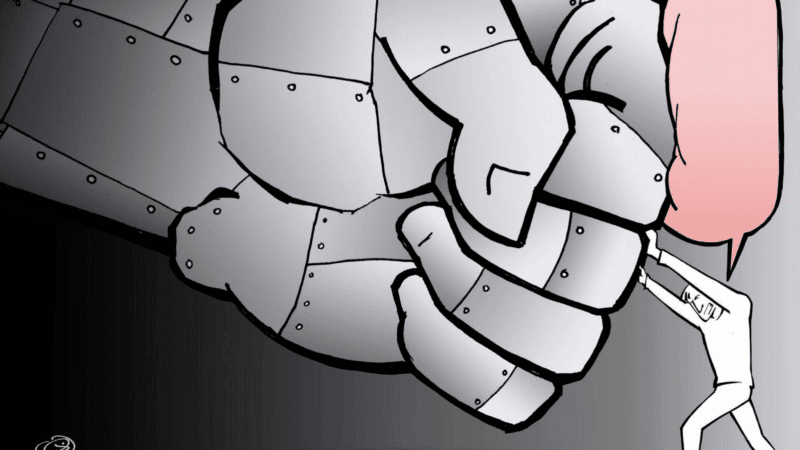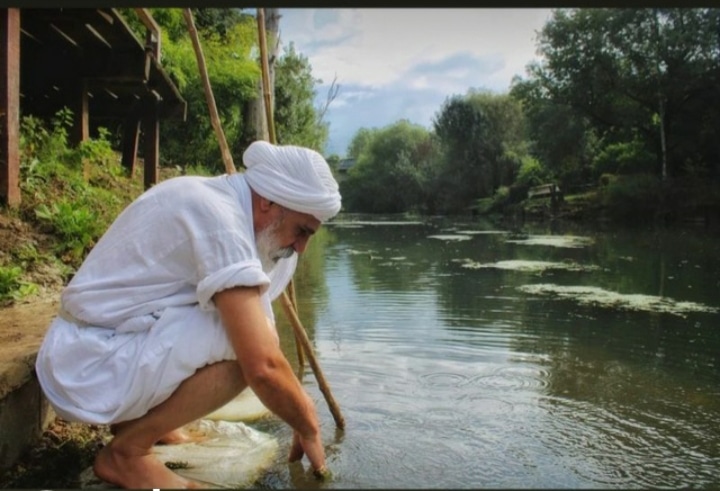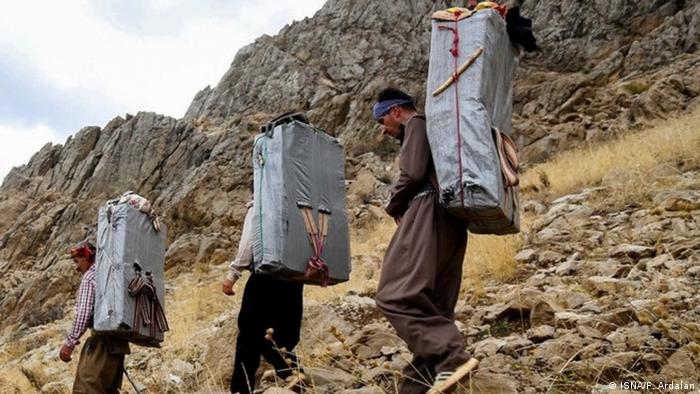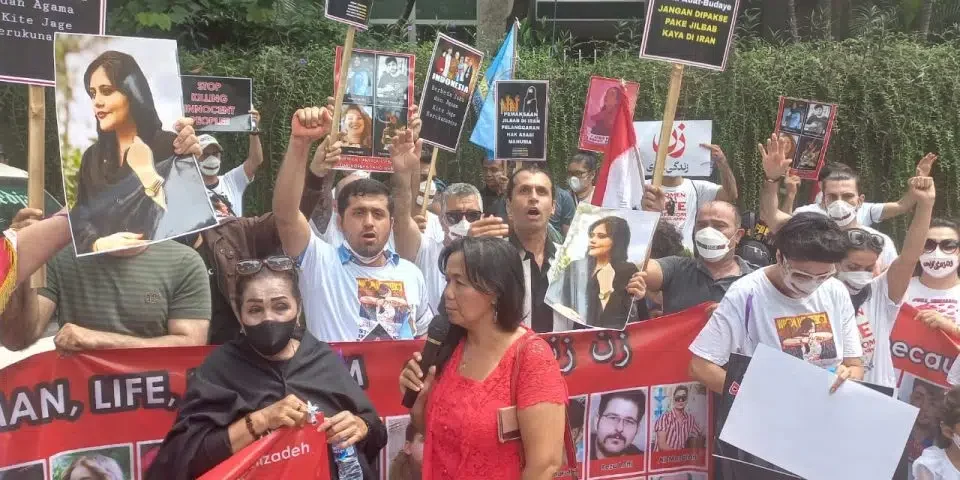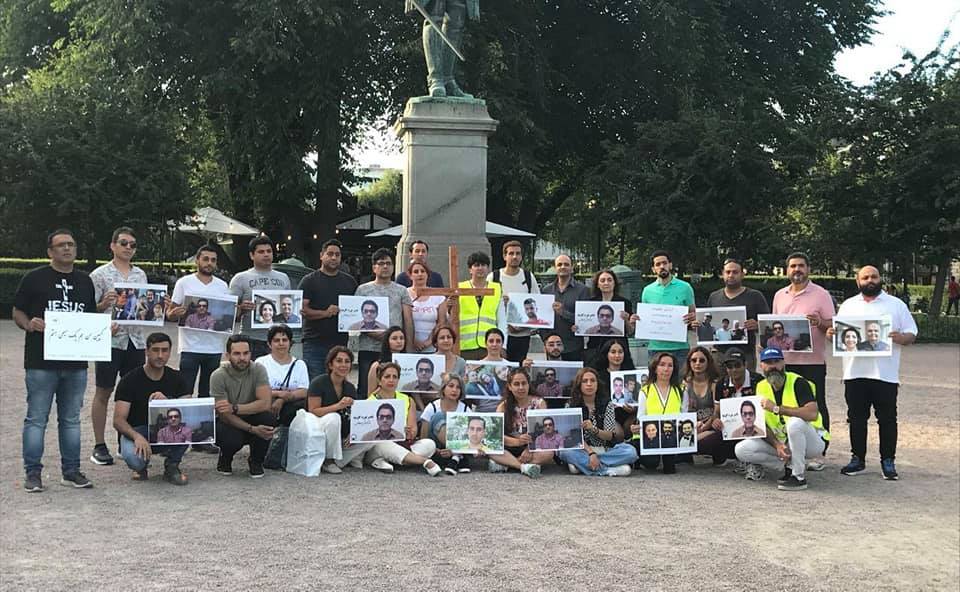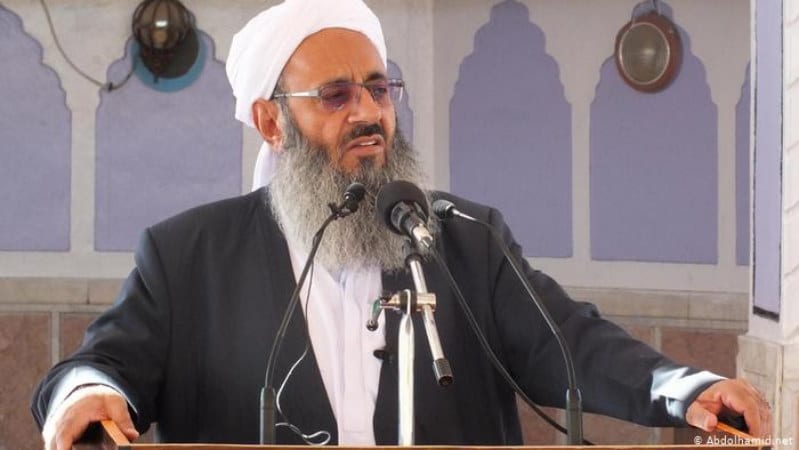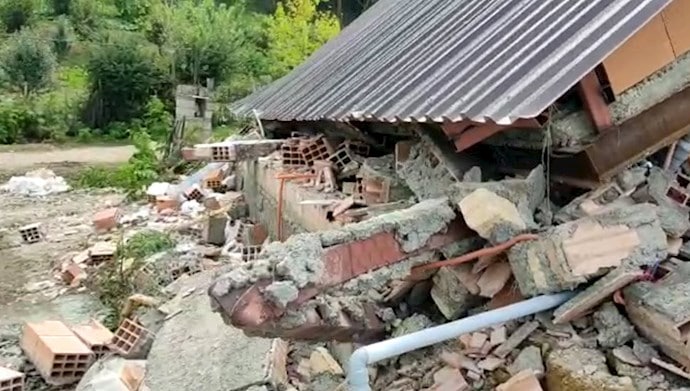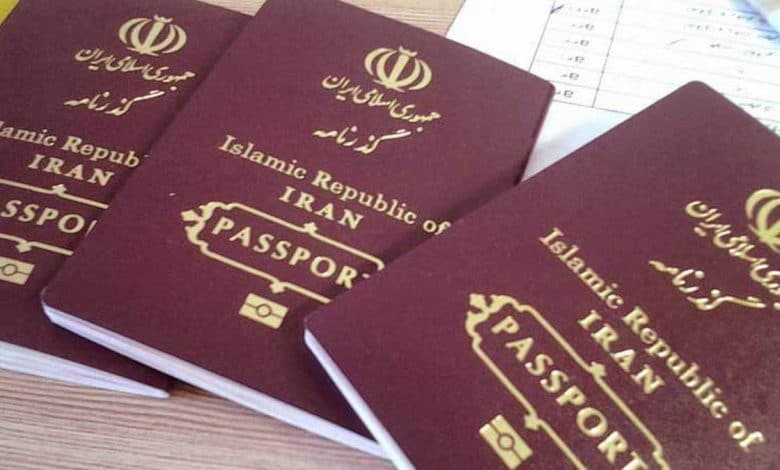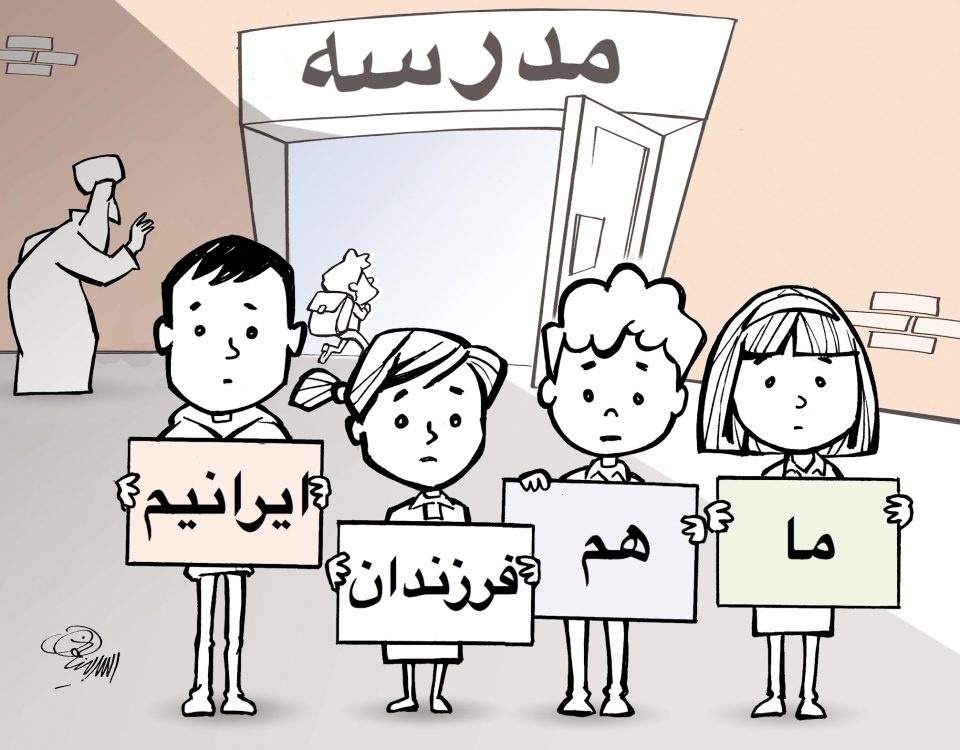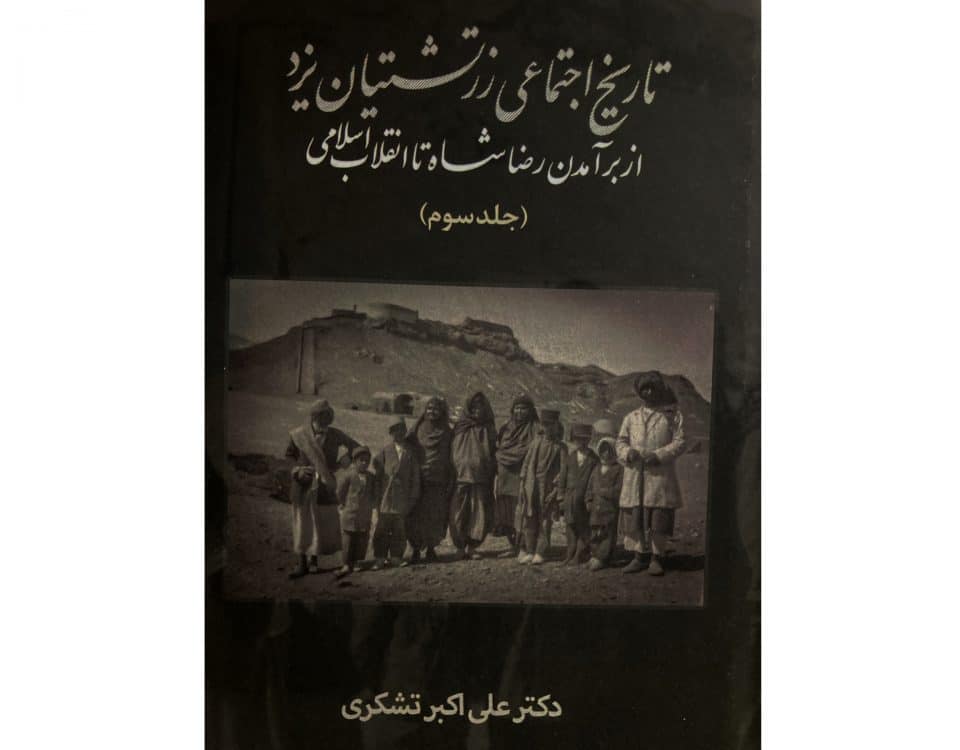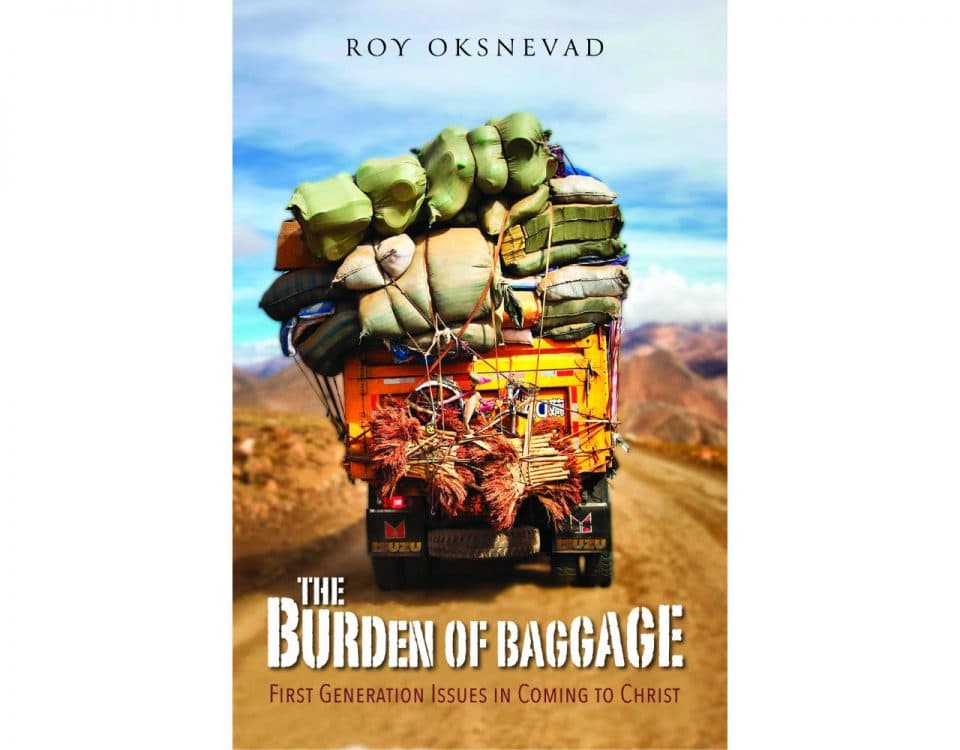Article
Religious minorities in Iran face cultural violence
This article was first published on the website Global Voices, and is republished here with kind permission. Over the last 45 years, the Islamic Republic of Iran has weaponised textbooks, religious debates, films and television series, city walls, and even cemeteries to impose cultural violence and institutionalise its dominance, particularly over religious minorities. The government has employed physical, structural, and cultural violence against religious minorities. While physical violence (prison, destruction of worship places, execution, confiscation of properties), and structural or legal violence (discrimination in the labour market and education, testimony in court) are often tangible, cultural violence (art, religious debates, education) is more nuanced. But cultural violence not only facilitates direct (physical) and structural violence but also legitimises violence, making it […]The impact of the water shortage crisis on Mandaeans Living in Khuzestan province
Behnaz Hosseini*–Acute water shortage in Khuzestan has affected the lives of all residents living in this southern province of Iran; however, it has made things even more complicated for a religious minority, whose rituals are heavily dependent on water. Mandaeans living in Ahvaz perform baptisms in the Karun River, where the water is neither suitable for drinking nor for agriculture due to pollution. A sharp decline in the flow of water in the Karun River and its pollution has made things very difficult for the Sabean-Mandaeans to conduct their religious ceremonies. Mandaeans in Iran, like other ethnic groups and minorities, are facing many challenges and hardships. They are followers of […]“Koolbars”, new “slaves” in Kurdistan
Mvoices invites a variety of people, including equal rights activists, researchers, and journalists, to share their experiences and their views on the challenges, achievements and rights of the religious minorities and civil society in Iran at the Mvoices’ “Carte Blanche”. In this issue, Awin Mostafa Zadeh / Kurdpa Human Rights Organization writes the story of “new slaves” in Iran, “Koolbars”.The Kurds suffer from discrimination for being both Sunni Muslims as well as an ethnic group in Iran. The people living in Iranian Kurdistan have been systematically targeted by economic deprivation, such that on the one hand Koolbari is imposed on them but on the other hand they are killed […]Iran’s Religious Minorities: the Forgotten People at the Berlin Gathering
Fred Petrossian–80,000 people in Germany’s capital have been marching in solidarity with protesters in Iran. On 22nd October, demonstrators came to Berlin from all over Europe. A statement was read at the end of this historic gathering which talked about periods of repression and state violence from the beginning of the Islamic Republic to the present. The statement also mentioned the repression and discrimination of ethnic and sexual minorities. However, incredibly, no mention was made in the statement about the persecution and suffering of religious minorities during the last 43 years. For more than four decades, the “Islamic Republic” has deprived millions of people of their basic rights as citizens. […]Iranian Christian Converts in Sweden: Birth of a social movement*
Fred Petrossian–The “I am A Christian too” campaign was launched by a group of Iranian Christian converts living in Stockholm, Sweden, in October 2020 in order to pursue policy change in Sweden and Iran. “I Am A Christian Too” is a loosely organized but sustained campaign among a group of Iranians who share Christianity as their core belief and set their main goal of being recognized as refugees by the Swedish government. As of July 2022, this campaign has held almost 50 gatherings in Stockholm, making it the most persistent street movement among Iranian religious minorities and even Iranian asylum seekers in the diaspora. At each meeting, between 20 […]Top Sunni Cleric Support for Taliban “created a division among Baloch society”
Molavi Abdolhamid, a prominent Sunni religious leader and the Friday prayer leader in Zahedan, welcomed the Taliban’s victory in Afghanistan, which surprised many in Iranian society and provoked various reactions. Afshin Shahi, a senior lecturer in Middle Eastern politics and International Relations at Bradford University, discussed with Mvoices the possible impact of Molavi Abdolhamid’s Taliban support on Iran’s Sunni community: “First and foremost, we have to remember that there is no such thing as a singular Sunni community in Iran. The Sunni population of Iran is very diverse. They are made of different ethnicities. They speak distinct languages and dialects and are geographically scarred. This reality is reflected through […]The Islamic Republic targets Bahá’ís: From Instagram to Villages in Iran
Recent reports indicate the Iranian State continues its repressive policy and violence against the Bahá’í community, using almost any imaginable means in recent months: hate speech on social media such as Instagram and Clubhouse, confiscating lands from Bahá’í villages, closing shops, banning them from higher education and imprisoning them. Such hostile actions have occurred since the triumph of the Islamic Revolution. However, in recent months, according to the Bahá’í International Community (BIC), “this machinery of hateful propaganda to demonize the Bahá’í community is reflected in a growing and coordinated network of hundreds of websites, Instagram accounts, Telegram channels, and Clubhouse rooms, with content such as “ Bahá’ís are unclean and […]
voices
“You’re Jewish, you can only leave the country once”
The Iranian citizens in “Your Voice” talk about the discrimination against religious minorities that they have witnessed. They provide short stories about the suffering of millions, who have become “simple incidents” in Iran. This is a story of Neda, a Jewish woman, who shares her testimony when she had to go through a “humiliating “ process to get a passport. It was the year 1987 that she set to apply for a passport and leave Iran but for her, getting a passport was not as much of a breeze as she once thought it was; actually, the Jews had to face questioning and contempt by the authorities in the process. […]The Bitter Taste of Discrimination
The Yarsan faith, also known as Ahl-e Haqq (People of the Truth) is estimated to have about two million followers in Iran, most of whom live in the western, predominantly Kurdish provinces, especially in Kermanshah. This religion also has some followers in Turkey and Iraq. This religious minority is not recognized by the Iranian Constitution, and the members of this community have faced continuous discrimination and persecution in the country. Sirvan, a follower of the Yarsan religion, from Sarpol-e- Zahab in Kermanshah province, remembers a bitter day of discrimination in school 25 years ago. Sirvan says: “I grew up in a moderately religious Yarsani family. The Yarsan religious traditions and […]
book
A Social History of the Zoroastrians of Yazd
A Social History of the Zoroastrians of Yazd was written by Dr. Ali Tashakori, a historian and history professor at the History Department of Yazd University (Yazd, Iran), and published by Samuel Jordan Center for Persian Studies in February 2020 in the USA. The three-volume book published in Persian discusses the treatment and lives of Zoroastrians from “the arrival of Islam” to “the Islamic revolution.” The first volume covers “the arrival of Islam in Iran to the establishment of the Nasseri Anjoman.” The second volume discusses “from the Nasseri Anjoman to the Fall of the Qajar.” The last volume focuses on the Zoroastrians’ situation from the rise of Reza Shah […]“The Burden of Baggage”, Cultural Challenges of Iranian Christian converts
In “The Burden of Baggage”, Roy Oksnevad, a church pastor, writer and missionary conducted surveys among different Iranian churches outside of Iran. He presents an insightful look inside the community of first-generation converts. He shows how Iranian culture carries over into the church and impacts both its strengths and vulnerabilities. Roy Oksnevad (PhD Intercultural Studies) was the director of the Muslim Ministry Program at the Billy Graham Center for Evangelism and started a coalition of ministry to Muslims in North America. His missionary work has been to Muslims, especially among first-generation Iranian Christians. The number of Christians in Iran is “without a doubt in the order of magnitude of several […]

